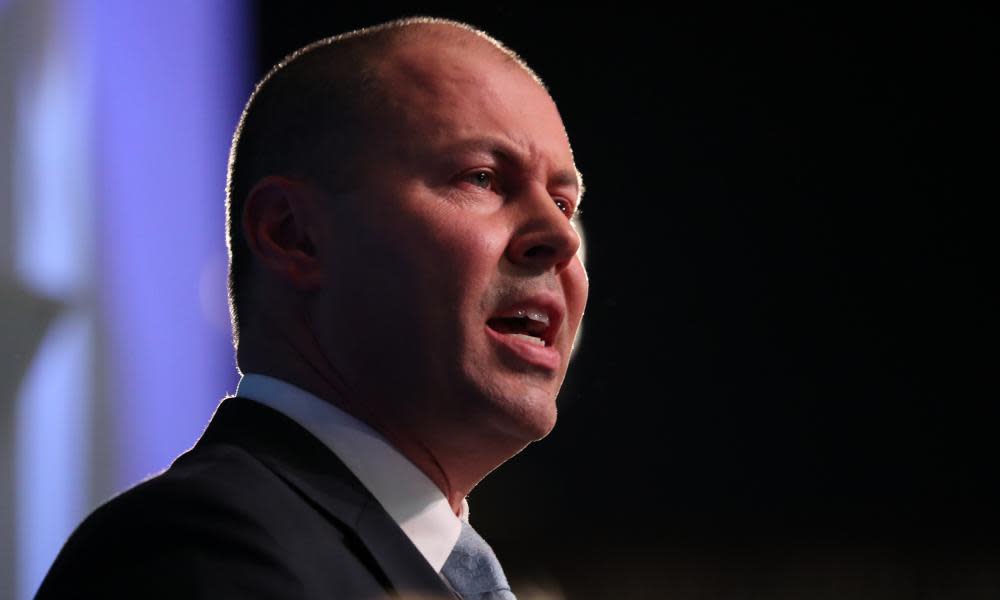Josh Frydenberg says federation a 'handbrake' on Australia's productivity

Federation reform could be the secret to improving productivity in Australia and avoiding blurred responsibility in fields such as health, the treasurer, Josh Frydenberg, has suggested.
In a speech to be delivered at the University of Adelaide on Thursday, Frydenberg reveals that state and territory treasurers have agreed to draw up potential productivity enhancing reforms in policy areas including transport, health, skills and environmental regulation.
In extracts of the Sir John Downer oration, seen by Guardian Australia, Frydenberg argues that Australia’s federal system has “matured” with greater uniformity in states’ approaches on taxation, education and transport and a single national approach to corporations law and the regulation of credit.
Related: Josh Frydenberg calls for reform of World Trade Organisation and its dispute rules
“But despite this progress we should be under no illusions about the inefficiencies that exist in our federation and the handbrake it represents on our productivity,” he says. “This is where we can and must do better, knowing full well that a new bucket of money will not make our economy more efficient or businesses more productive.
“As we seek to lift our productivity from its current five-year average growth rate of 0.6% commonwealth and state governments need to work together and treat the productivity challenge as a national imperative.”
Frydenberg argues that with the challenges of an ageing and growing population facing the Australian economy “we must make sure the lines of accountability between levels of government are not blurred”.
Frydenberg notes the Productivity Commission’s Shifting the Dial report had suggested that an “economic and social dividend” could be unlocked through supply-side reforms in areas of state responsibility, such as savings of $140bn over two decades in the health sector.
In the health sector, these reforms included:
Creating funding pools at the primary health network and local hospital network level to improve population health, manage chronic conditions and reduce hospitalisation
Making care more patient-centric
Improving access to healthcare data, through systems like the My Health Record
Moving away from community pharmacy to automatic dispensing of medicines in some cases, and
Reforming alcohol taxes
Frydenberg says while federal, states and territory treasurers have already met to “advance a program of work to boost the nation’s productivity and to develop actionable items” in key areas, the commonwealth and states are also pursuing their own reforms, such as New South Wales’ reform of payroll tax and stamp duty.
At the federal level the Coalition government had achieved tax cuts for income-earners, small and medium businesses; implemented the Harper review; and legislated the consumer data right.
Frydenberg says despite Australia’s 28 years of economic growth there is “no room for complacency” and “making the federation work better is essential” to the task of continued growth.
Earlier in November Liberal MP Jason Falinski suggested that states should raise their own revenue, an idea most recently proposed by Malcolm Turnbull in 2016 but abandoned.
In the speech, Frydenberg defends the present system of the federal government raising 80% of revenue and making GST equalisation payments to boost smaller states, which he says have “allowed citizens to share equally in the prosperity of the nation irrespective of which state they reside in”.

 Yahoo News
Yahoo News 
